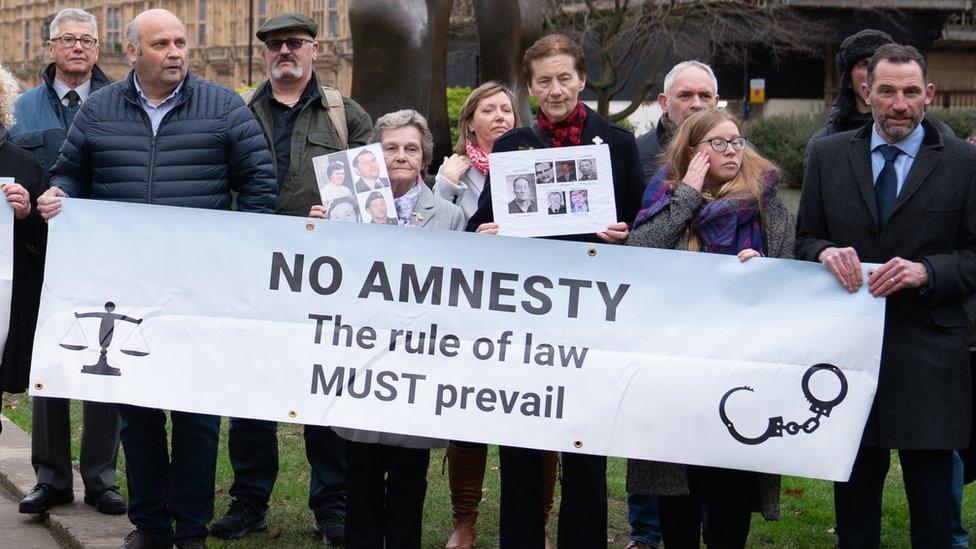Legacy bill: Irish government should consider UK legal action, says Sinn Féin
- Published
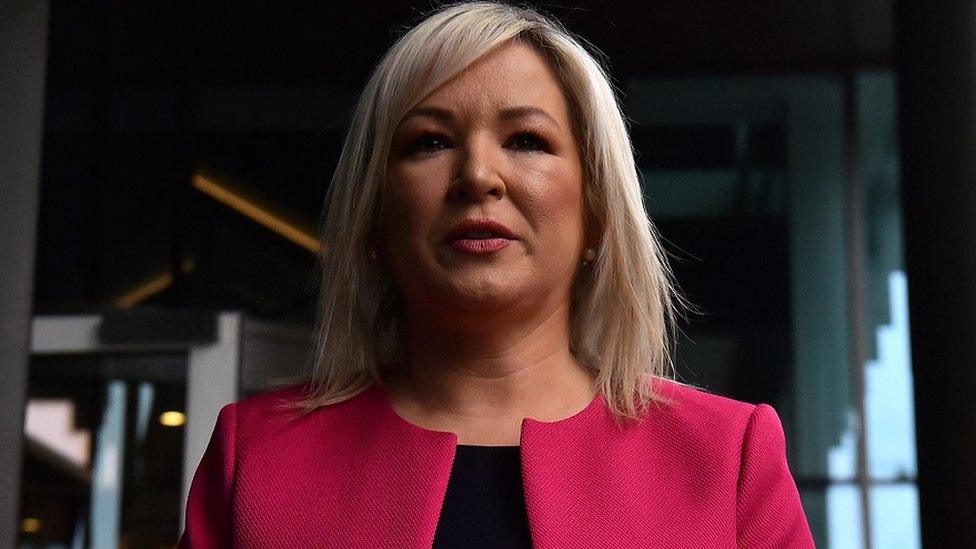
Michelle O'Neill was speaking at a hunger strike commemoration in the Republic of Ireland on Sunday
Michelle O'Neill has said the Irish government should consider legal action if the UK refuses to withdraw its controversial Northern Ireland legacy bill.
Sinn Féin's deputy leader was speaking at a memorial event in Cork on Sunday.
She said the proposed bill was a "denial of human rights of victims and their families".
The bill would end Troubles-era cases and inquests, and offer a conditional amnesty to those accused of killings.

The Troubles was a period of conflict which lasted for 30 years and cost the lives of more than 3,500 people
Speaking at Sinn Féin's 42nd annual National Hunger Strike Commemoration, Ms O'Neill said the "anti-democratic, unjust" legislation's sole purpose is to "conceal the truth and protect British state forces".
"The British government should withdraw this legislation.
"And if the British government do not withdraw this legislation, the Irish government should confront this denial of human rights through an interstate case and international action against the British government."
Ms O'Neill also used her speech to call upon the Democratic Unionist Party (DUP) to return to the power-sharing assembly.

What is the legacy bill?
Legislation that aims to draw a line under the Northern Ireland Troubles by dealing with so-called legacy issues
The Northern Ireland Troubles (Legacy and Reconciliation) Bill runs to almost 100 pages
It was introduced in May 2022 in an attempt to deal with more than 1,000 unsolved killings
A central element involves immunity from prosecution for those who co-operate with investigations run by a new information recovery body (ICRIR)
Victims' groups, the Irish government and political parties at Stormont are opposed to the bill, arguing it will remove access to justice for victims and their families
Veterans Commissioner Danny Kinahan gave the bill a cautious welcome and it is also supported by the Northern Ireland Veterans Movement
The bill had its second reading in the Lords on 23 November. The government told peers it would bring forward amendments including "a more robust process" around immunity from prosecution
Lord Caine of the Northern Ireland Office said the ICRIR would be able to conduct criminal investigations and to expect more amendments to the bill
In June an amendment was introduced that would delay changes for a year to "ensure a smooth transition" to new arrangements
Another amendment stated any investigation run by the ICRIR must comply with obligations under the Human Rights Act 1998

Sinn Féin became the biggest party at Stormont after an election in May 2022, meaning Ms O'Neill is entitled to be first minister.
But the DUP's refusal to join an executive has prevented her from doing so.
The DUP has said it will not return to devolved government until its complaints about the post-Brexit trading arrangement are addressed.
- Published21 January 2023
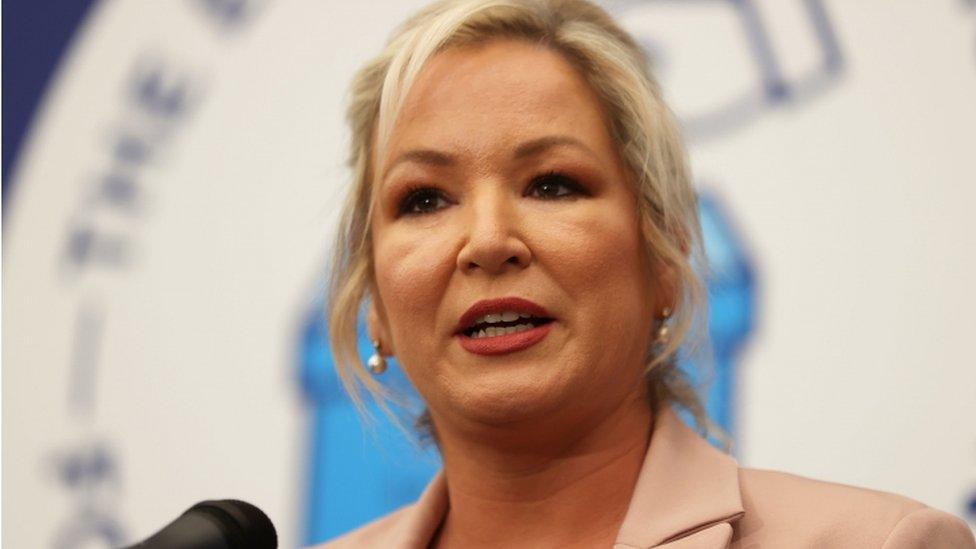
- Published18 July 2023
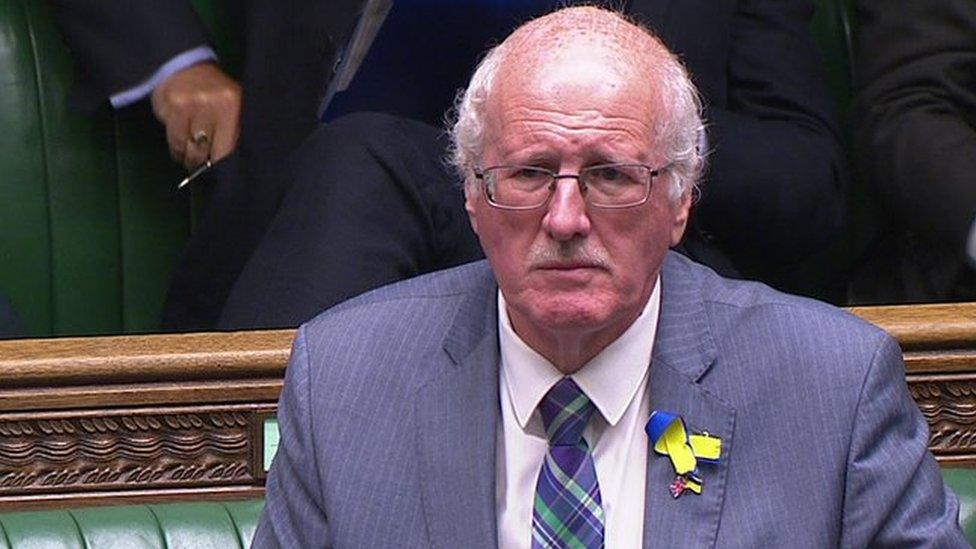
- Published18 July 2023

- Published8 May 2022
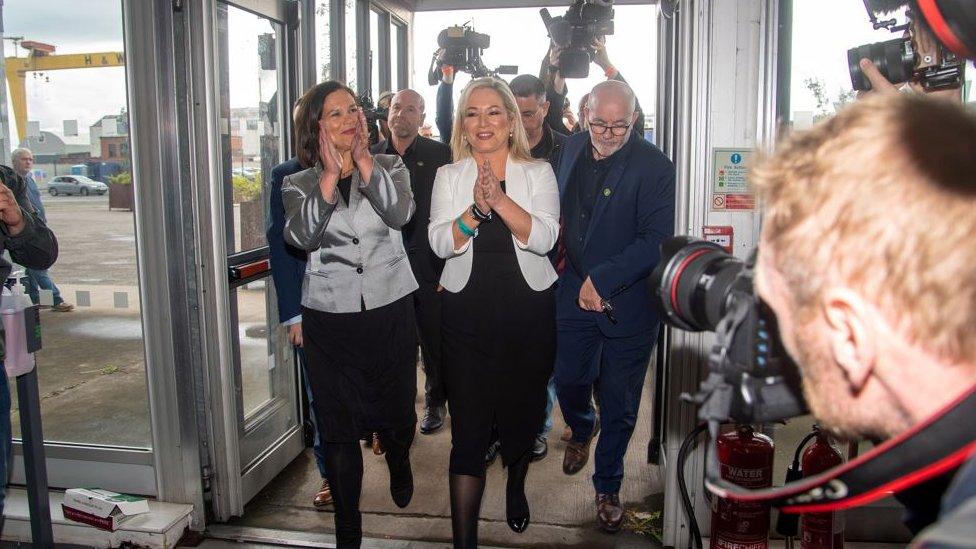
- Published8 June 2023
